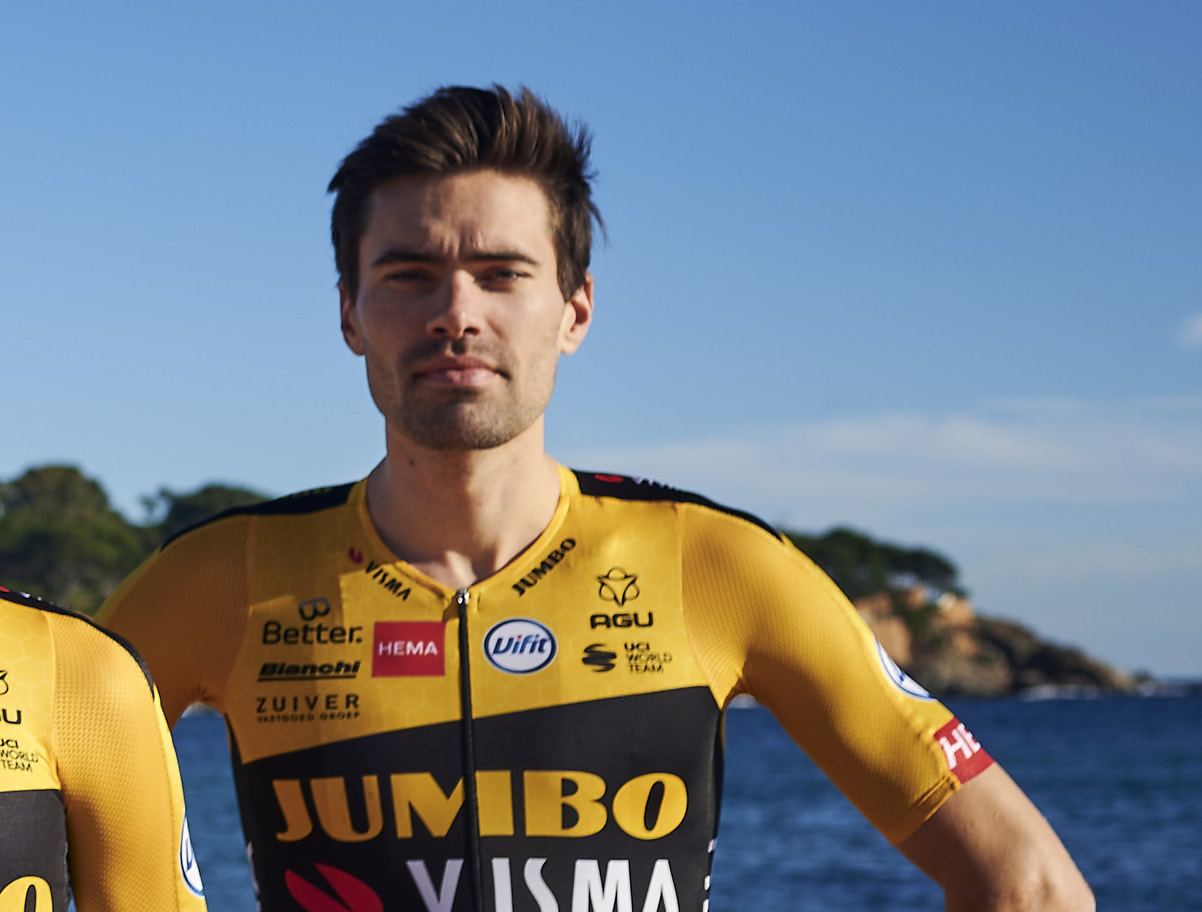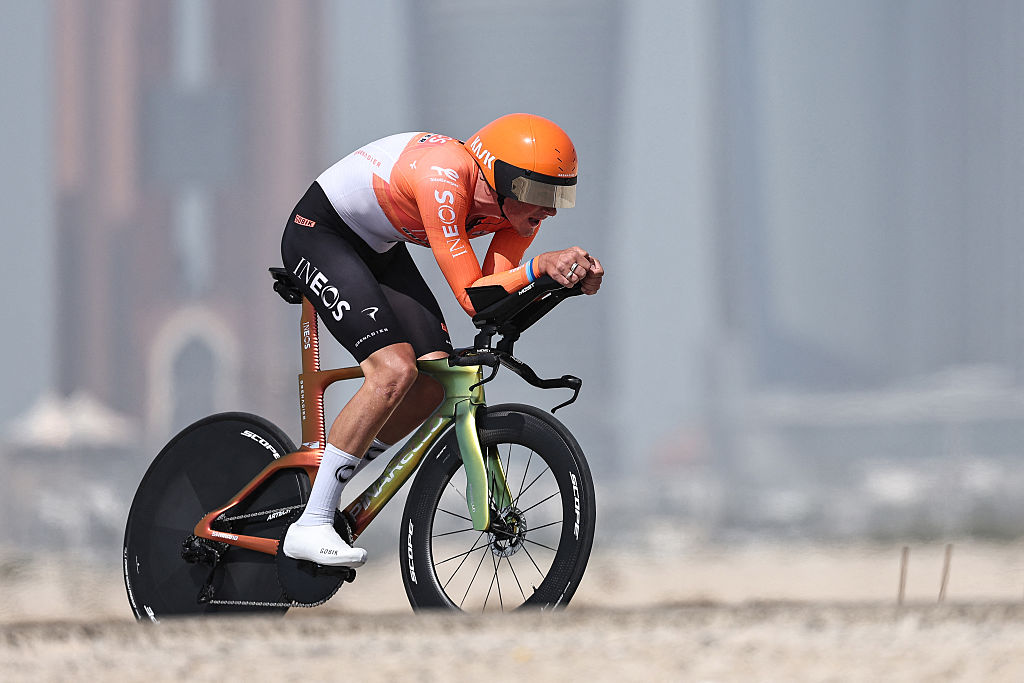Quitting MPCC was Dumoulin's decision say Jumbo-Visma
'Ketones is used as an excuse for winning or losing' says rider’s director

The latest race content, interviews, features, reviews and expert buying guides, direct to your inbox!
You are now subscribed
Your newsletter sign-up was successful
Jumbo-Visma have defended Tom Dumoulin's decision to quit the MPCC, stating that their Tour de France contender didn't want to be accused of hypocrisy over the controversial use of sports supplement, ketones. Dumoulin's reasons for leaving the MPCC were branded as 'not reasonable' by the movement's president Roger Legeay.
Dumoulin announced that he was leaving the MPCC last weekend and cited ketones and the body's lack of clarity and support when it came to racing Paris-Nice earlier this year.
The 2017 Giro d'Italia winner was a member of the MPCC because his previous team - Sunweb – were enlisted but when Dumoulin left them for rivals Jumbo Visma he decided to carry on as an independent member. Jumbo-Visma left the MPCC in 2015 and their current use of ketones put them in direct conflict with the MPCC that have a gentleman's agreement not to use the product.
"It was his own idea to leave the MPCC," Jumbo-Visma's director Merijn Zeeman told Cyclingnews.
"It was based on Tom's opinion and he has to do what he thinks is right. We don't make a secret of the fact that ketones are a supplement that we on some occasions use. The MPCC's advice is to not use it so Tom has two options. He can stay silent about it but he doesn't want to be a hypocrite as it's a supplement he wants to use. I think that he makes a fair argument."
The MPCC's stance over ketones comes from their belief that there is a lack of information over the long-term effects over the supplement. For Jumbo-Visma, and other teams that use the product, it only provides one piece in the jigsaw when it comes to fuelling riders and optimizing performance.
"People think that it's the difference between winning and losing and it's used as an excuse when you don't win but if you follow all the international studies then you can see that this assumption isn't correct," Zeeman added.
The latest race content, interviews, features, reviews and expert buying guides, direct to your inbox!
Zeeman also stressed that Jumbo-Visma follows all the MPCC's guidelines that have been implemented by the UCI and WADA in recent years and that their decision to declare the use of ketones and Dumoulin's resignation from the MPCC comes from their collective desire to remain transparent with the cycling community and the sport's fans.
"We're trying to be a transparent team and to not have any secrets about it. If people want to believe that it's a supplement that decides success then that's up to them but there are people who know better."
One area that MPCC and UCI rules don't yet overlap is over the use of corticoid steroids. They are banned at all times by the MPCC and although the UCI has yet to follow suit, they appeared determined to bring their guidelines in line with the MPPC during this season. However, Jumbo-Visma the situation is clear and they adhere to MPCC rules with only the exception of ketones.
"Our policy is very strict and we follow the MPCC guidelines on all medical parts, except for ketones. We completely support the idea of clean cycling and clean sport. I think that we have one of the strongest anti-doping policies in the peloton and you can ask all our new recruits about that, and how strict it is. We're very proud of that and the Dutch Olympic committee has cited our policy to all the different sports in Holland as us being an example of how an anti-doping policy should look like."
Concerning Dumoulin's claim that the MPCC should have done more to protect riders during Paris-Nice, the Jumbo-Visma squad stand together with their rider.
The Dutch team decided not to race the French week-long stage race due to the spread of the COVID-19 pandemic. At the time Europe wasn't yet in full lockdown but there were genuine concerns over rider safety and the spread of infection. Several other WorldTour teams decided not to race while Bahrain McLaren pulled out mid-race. In the end, the race finished a day earlier than planned with the French government and race organisers ASO deciding to pull the plug before the event reached Nice.
For Dumoulin, the MPCC should have done more to represent their members, although this was a claim refuted by the MPCC's leader Roger Legeay in an interview with Cyclingnews earlier this week.
"We don't want to look for controversy and what he's said is that he didn't support the way in which the MPCC handled the Paris-Nice affair and the message after Paris-Nice in which they said that riders shouldn't train too much because of the risks of infection from COVID-1. And one week before, there was a race and the chance of infection means that he has his own opinion when it comes to the MPCC. I think that he has every right to say that I can see his point of view," Zeeman said.
"We didn't support that and up front, from the start, we had big questions about the safety of everyone at Paris-Nice. We had a lot of questions and the health of our riders and staff were our main priorities."
Daniel Benson was the Editor in Chief at Cyclingnews.com between 2008 and 2022. Based in the UK, he joined the Cyclingnews team in 2008 as the site's first UK-based Managing Editor. In that time, he reported on over a dozen editions of the Tour de France, several World Championships, the Tour Down Under, Spring Classics, and the London 2012 Olympic Games. With the help of the excellent editorial team, he ran the coverage on Cyclingnews and has interviewed leading figures in the sport including UCI Presidents and Tour de France winners.

